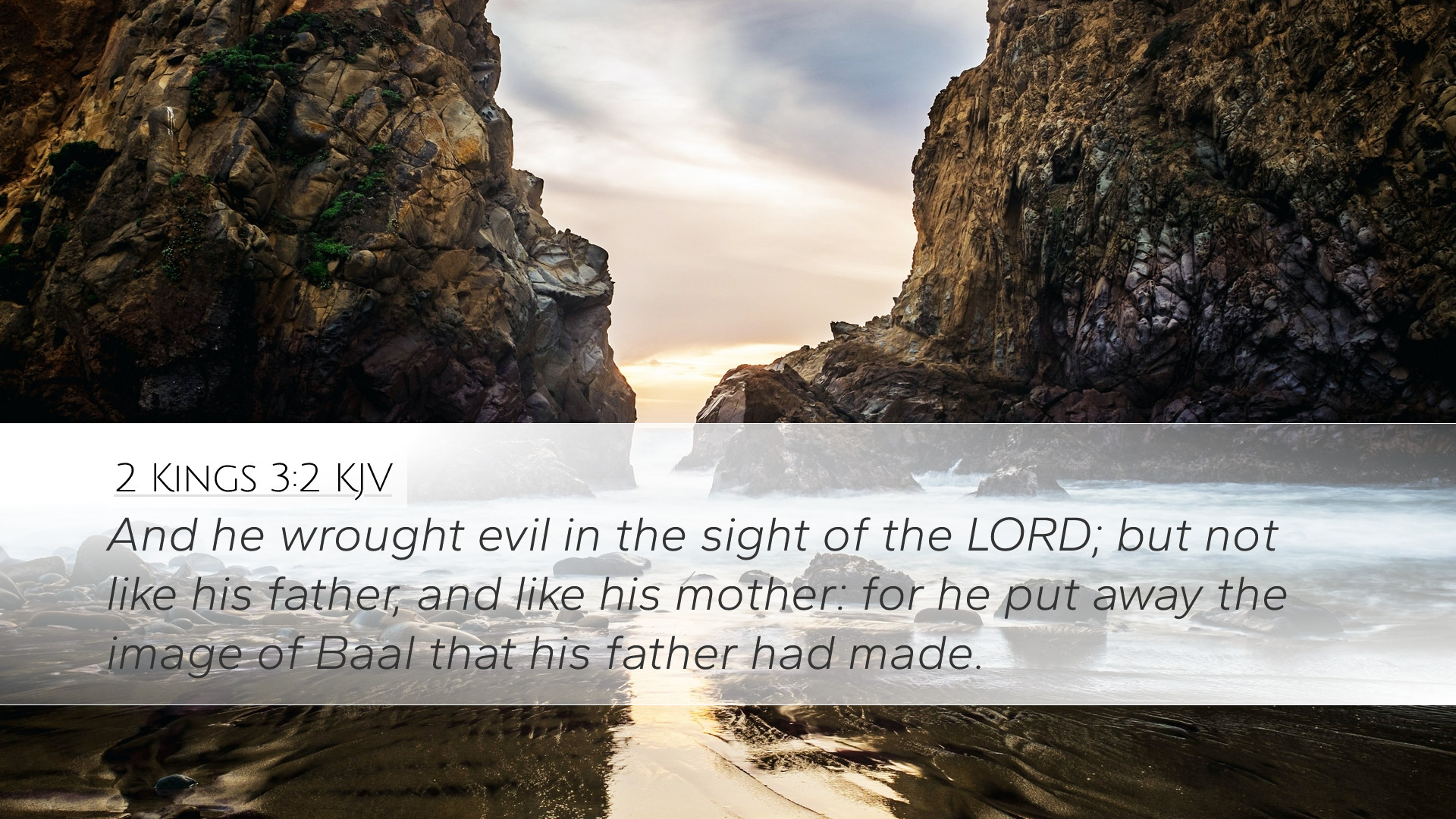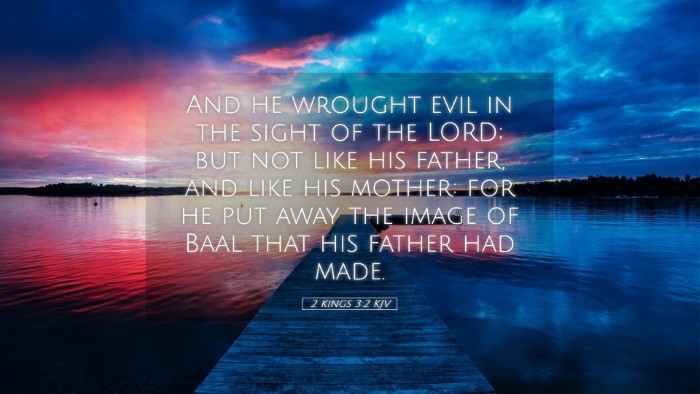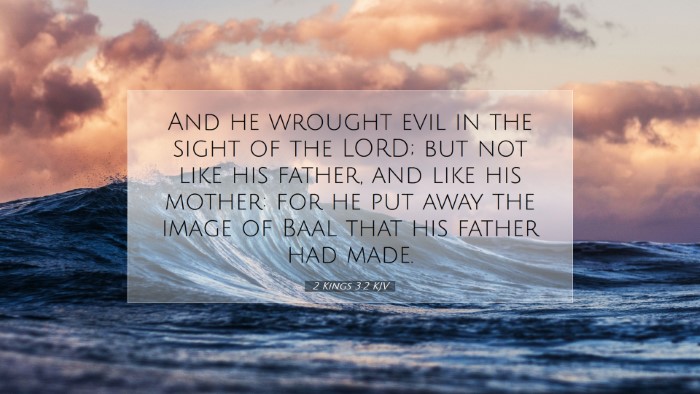Commentary on 2 Kings 3:2
Verse Context: 2 Kings 3:2 states: "And he did that which was evil in the sight of the LORD; but not like his father, and like his mother: for he put away the image of Baal that his father had made."
General Overview
This verse is part of the account of King Joram (or Jehoram) of Israel. The author of Kings provides a succinct evaluation of Joram's reign, emphasizing both his moral failings and certain reforms he attempted in relation to idol worship. Understanding this verse requires exploration of the historical context, theological implications, and character analyses.
The Moral Evaluation of Joram
Matthew Henry's Insights: Matthew Henry comments that Joram's actions were distinctly categorized as evil in God's sight, similar to the judgment placed upon his forebearers. However, he notes that Joram did not entirely replicate the idolatrous practices of his father Ahab or his mother Jezebel, which implies a degree of reformation or at least a modification of a grave offense against the Lord.
He points out that Joram's efforts to remove the image of Baal indicate a recognition of the need for reform, although they fall short of true repentance and worship of Yahweh. This mirrors a common struggle among leaders who seek to balance political expediency with spiritual fidelity.
Theological Implications
Albert Barnes' Commentary: Albert Barnes highlights that a key theme in this verse is the contrast between bearing a name of righteousness while still inhabiting a corrupt heart. Joram's actions represent an incomplete reformation; he attempted to remove the symbols of Baal worship but did not turn to the exclusive worship of Yahweh.
Barnes suggests that this reflects a contemporary challenge faced by believers today: the struggle between outward appearances of faith and the inward transformation that God desires. Joram's legacy serves as a warning against half-hearted commitments to God.
Character Analysis of Joram
Adam Clarke's Perspective: Adam Clarke delves deeply into the character of Joram, suggesting that Joram’s decision to remove Baal worship was politically motivated, fearing the discontent of the populace more than a heartfelt desire to please God. Clarke posits that Joram’s moral dilemmas illustrate the complexities of leadership in a divided nation plagued by corruption.
Joram knew the history of Israel's downfall and the judgments that came upon them for idolatry, yet his leadership reflects an unwillingness to wholly abandon the practices that had been ingrained within the culture. For Clarke, this teaches a significant lesson about the nature of true repentance: it calls for total surrender to God, not merely a figurative "cleaning up" of one’s life.
Cultural and Historical Context
Understanding 2 Kings 3:2 necessitates awareness of the period in which Joram ruled. The kingdom of Israel was rife with idolatry and rebellion against God, particularly under Ahab and Jezebel. The mention of Baal worship here is crucial, as it reflects the ongoing conflict between faith in Yahweh and the lure of more expedient pagan practices that had woven their way into the fabric of society.
Both Matthew Henry and Albert Barnes emphasize the importance of recognizing the surrounding cultural influences that may lead even a leader attempting reform to fall short of true devotion to God. Joram's administration and the struggles he faced are indicative of broader societal challenges faced by nations even today.
Concluding Thoughts
In summation, 2 Kings 3:2 serves as a poignant reminder of the complexities of leadership in faith communities. The characters and events portrayed challenge current pastors, students, and theologians to reflect on their own lives and the lives of the communities they serve.
The message of the text reflects the ongoing tension between old ways and new paths, politics and spirituality, and faith and action — serving as a rich doctrine for study and reflection within the context of contemporary church life.


